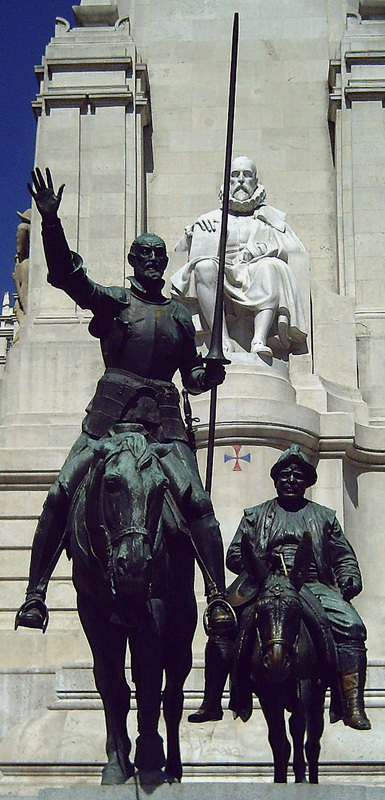Subversion or Support of Spanish National Authority
Early seventeenth century Spain had not yet fully coalesced as a nation, and as a result the royal crown and its nationalist agenda shared a complex and often competitive relationship with other forms of municipal government. Using the same physical text, anti-nationalist Spaniards could conceive of Don Quixote as mocking the way in which myths of Spanish heritage contributed to national authority, while pro-nationalist Spaniards could conceive of it as mocking the way in these myths harmed national authority. As William Childers argues in Transnational Cervantes, some readers covertly imagined Cervantes’ novel as attacking the spirit of Spanish nationalism. Disgruntled Spaniards participated in “prohibited readings of permitted texts.” As the Spanish nation-building project created a desire to proclaim loyalty to the crown, Spaniards deliberately constructed heritage tales to brag about their limpieza de sangre, or purity of Spanish and Christian ancestry. As Childers writes, myths of “purity operated…to consolidate national unity around religious identity” (12). Bearing this in mind, one could read Don Quixote’s desire to restore the armor of his “ancestors” as a satire of Spaniards who constructed overly-patriotic myths of their Spanish heritages. Without inserting additional material into the text, readers could subvert nationalism by laughing at the nationalist mythos of Spanish heritage while laughing at the character of Don Quixote.
While using the same physical text, readers of Don Quixote could also change the imagined “reality” of the novel into a call for the defense of centralized, national authority. Royal censors who approved the novel’s publication likely saw its titular character as a satire of local nobles who overemphasized their prestige. As Michael Crawford explains in Status and Privilege in Castile, the granting of hidalgo, or gentleman status, “led to a significant dispute between the Crown and local authorities over who had the de facto power to recognize and bestow privilege” (170). When the unsophisticated Don Quixote calls himself el ingenioso hidalgo de La Mancha, he mocks the petty noblemen who usurped national authority by getting their local communities to recognize their hidalgo status. Without physically changing the text of the novel, royalist-sympathizing censors.
Works Cited
———. Don Quixote: The Ormsby Translation, Revised, Backgrounds and Sources, Criticism. Ed. Joseph R. Jones and Kenneth Douglas. Trans. John Ormsby. New York : W.W. Norton, 1981. Print.
Childers, William. Transnational Cervantes. Toronto: University of Toronto Press, 2006. Print.
Crawford, Michael. The Fight for Status and Privilege in Late Medieval and Early Modern Castile, 1465-1598. University Park: Pennsylvania State UP, 2014. Print.

